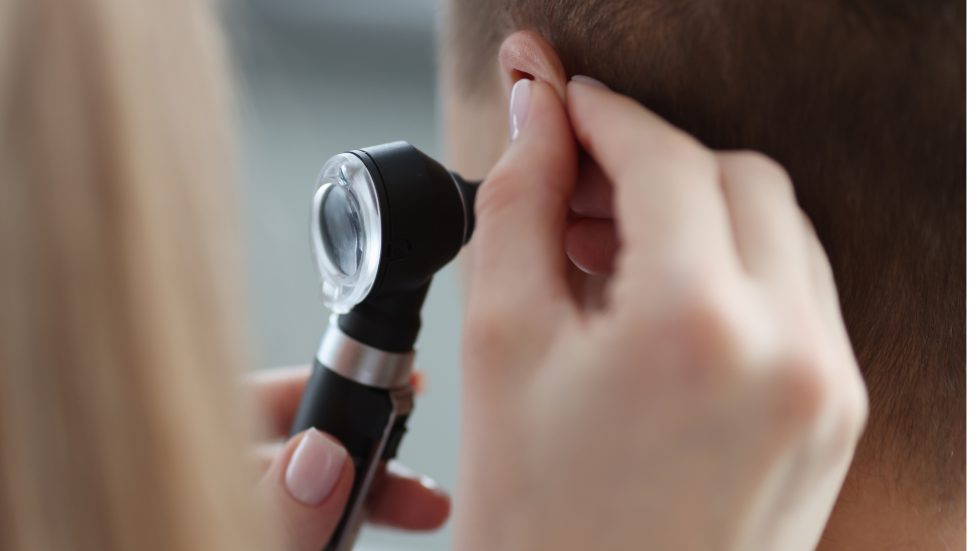
As Ooltewah, Tennessee, experiences winter, a subtle chill in the air adds a touch of coziness to the season. It’s the perfect time to explore the Biology Trails on White Oak Mountain, enjoy family activities at the Imagination Station, or savor a cup of coffee in the welcoming atmosphere of Oaks Coffee House. As you embark on winter adventures, make sure to equip your family with everything you need to stay healthy this season.
How Can I Reduce My Child’s Ear Infection Pain?
The adorable ears of your little one, growing along are more susceptible to ear infections than those of adults. This vulnerability stems from their developing immune system and the increased likelihood of swelling and infection in their drainage pathways, particularly after a cold.
For children under three years old, there is a significant 5 out of 6 chance of experiencing an ear infection, making it a common ailment second only to the cold. Recognizing the signs of an ear infection, understanding how to manage pain and discomfort, and knowing when to seek medical attention are all crucial for parents.
Different Types of Ear Infection
Ear infections, whether bacterial or viral, can lead to pain, hearing loss, and fever. While many resolve on their own, addressing them promptly is essential to prevent complications. The type of ear infection—whether inner, middle, or outer—determines the appropriate course of action:
- Outer Ear Infection: Commonly known as swimmer’s ear, this occurs when the ear canal becomes infected, often due to bacteria transmitted during activities like swimming.
- Middle Ear Infection: Involving the space between the eardrum and inner ear, this infection typically originates from an upper respiratory infection.
- Inner Ear Infection: More prevalent in adults, this type can result from a middle ear infection spreading to the inner ear and is caused by viruses.
What are the signs of an ear infection?
Identifying the source of pain in children, particularly babies, can be challenging. Keep an eye out for these signs indicating a potential ear infection:
- Ear pain, especially when lying down
- Tugging or pulling at an ear
- Difficulty sleeping
- Increased crying
- Fussiness or irritability
- Trouble hearing or responding to sounds
- Loss of balance
- Fever of 100°F or higher
- Drainage of fluid from the ear
- Complaints of a headache
- Loss of appetite
How can I treat an ear infection at home?
While consulting a healthcare provider is recommended, these home remedies, utilizing common household items, may provide relief for your child:
Warm Compress:
Apply a moist compress over your child’s ear for 10 to 15 minutes to reduce pain.
Over-the-Counter Pain Medication:
Administer age-appropriate medication to address fever. Acetaminophen is suitable for babies older than 6 months.
Fluid-Drying Ear Drops:
For outer ear infections, consider using over-the-counter fluid-drying ear drops.
Warm Oil:
If there is no fluid drainage, place a few drops of room temperature or slightly warmed olive or sesame oil in the affected ear.
Elevate Your Child’s Head:
Slightly elevating your child’s head improves sinus drainage.
When to Seek Professional Help
If symptoms persist beyond a few days, it’s advisable to consult a doctor. Seek medical attention if your child has a high fever, fluid or blood from the ear, loss of hearing, or frequent ear infections. Antibiotics may be prescribed for pain relief and infection treatment.
How to Prevent Ear Infections
Prevention is key to maintaining good ear health. Follow these measures:
- Wash Hands Frequently: Regular hand washing helps prevent the spread of germs.
- Get Vaccinated: Ensure both you and your child receive recommended vaccinations to reduce the likelihood of infections.
- Avoid Cigarette Smoke: Secondhand smoke increases the risk of ear infections.
- Limit Pacifier Use: Following guidelines from the American Academy of Pediatrics, consider discontinuing pacifier use around 6 months to reduce the likelihood of ear infections.
Ease your child’s ear pain and discomfort with these home remedies, and if you suspect an ear infection, visit AFC Urgent Care, no appointment is needed. Our experienced team can offer guidance, create a treatment plan, and prescribe medication if necessary, ensuring the well-being of your loved one’s ears..


